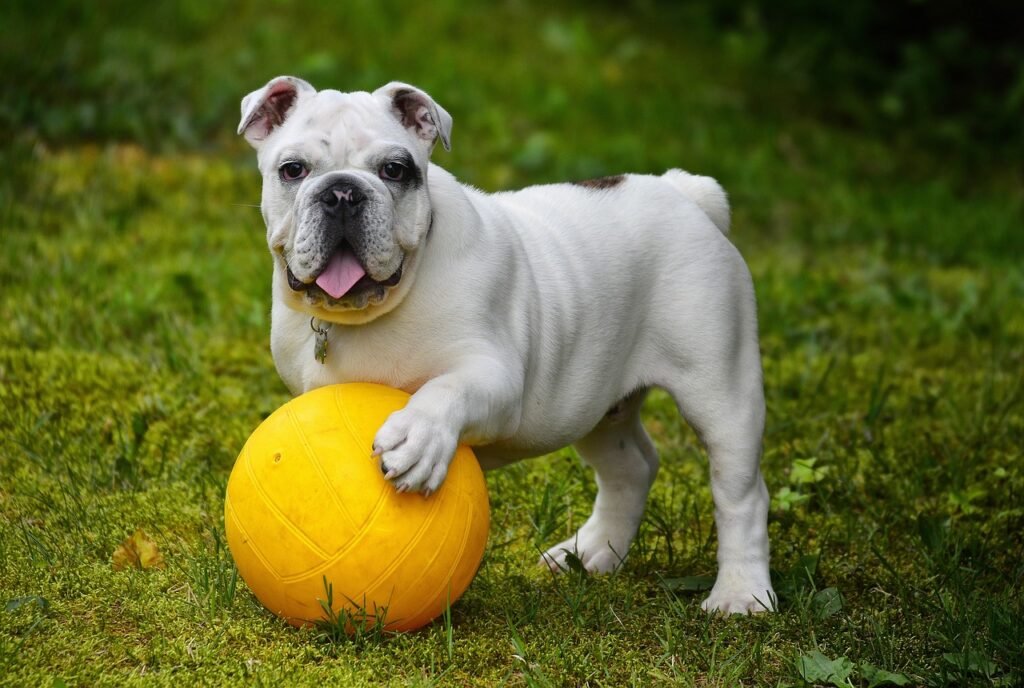Indeed, they’re our most precious possessions, for their warm greetings into the house, their wagging tails, and their cheer following a tiring day makes pets family. They are stated to be emotional companions and offer comfort, loyalty, and endless love. So, when our furry babies are feeling under the weather, it breaks our hearts. Simple stomach upset or a more serious digestive problem. All we want is to see them happy, healthy, and back to their goofy and playful selves.

The Suffering Caused by Stomach Problems in Dogs
It is dreadful, when their dog is wailing in the dead of night for its stomach pains that have caused an uproar in its life. A dog’s digestive system is just about okay, and the varying issues can cause symptoms ranging from nausea, vomiting, and diarrhea to any one of these. Some of these gut disturbances can be quickly resolved without a vet’s visit by using available supplements, while others demand serious consideration and treatment. An animal parent should know the signs of when they should seek help before complications occur.
The following are problems that deal in general with digestion in dogs and how to deal with them:
1) Inflammatory Bowel Disease (IBD)
An inflammatory bowel disease is a long-term condition characterized by an inflammatory process that interferes with the inoculation of the intestines and digestion in the dog. The inflamed intestines poorly absorb food and produce clinical symptoms of weight loss, vomiting, and diarrhea. IBD is a syndrome rather than a disease, and it genuinely steals the quality of life from your dog.
What causes IBD?
Despite the many tentative explanations made regarding what may contribute in some way to the disease, bacterial infections, parasites, or food hypersensitivity, the cause of the disease is still an enigma. Stress and genetics may also be a factor.
Signs of IBD:
Continuous diarrhea or vomiting
Blood or mucus in stool
Lethargy, weight loss, decreased appetite
Poor coat quality
Therapeutic Management:
IBD has no cure but can be controlled with medications and diet. Your vet may prescribe steroids or antibiotics to reduce inflammation. Dietary manipulation is an absolute must and will often require a switch to a special palatable diet that your dog can easily digest.
What You Can Do:
Keep a log of your dog’s eating behavior and any changes in behavior or stool.
Monitor the dog’s weight and record any fluctuations.
Avoid any offending foods; work together with your veterinarian to determine a special diet.
Esophagus Pain – Inflammation of the esophagus (the pipe that goes from the mouth to the stomach) causes the condition of esophageal pain, which is sorely painful for the dog. Some of the dogs with this condition may find it painful to swallow, cough, or vomit after eating.
Acid reflux with irritation of the esophagus, obstruction of the esophagus by foreign objects, and infections are the other causes.
Showing signs of discomfort in the esophagus:
Difficulty swallowing, chewing
Drooling excessively
Vomiting after a meal
Sore or painful when swallowing
Treatment:
Initial treatment for esophageal irritation involves changing the diet to soft, highly digestible foods. Available medications will help in decreasing inflammation and allow a faster healing rate. In some cases, surgical intervention is required if a blockage is present.
What can you do:
Opt for an easily digestible premium brand. Avoid high-fat diets that could provoke the esophagus. Any continuous symptoms would warrant visiting a vet for further investigation.
3) Gut Parasitic Conditions
Roundworms, tapeworms, and hookworms are the most common internal parasites for dogs. They could be exceedingly invisible even for the naked eye, but they can cause distress or an alteration of appetite or tummy disturbances.
What causes intestinal parasites?
Most parasites are acquired through parasite eggs found from the consumption of contaminated foods, waters, and soil.
Signs of intestinal parasites:
Vomiting, diarrhea, or scooting
Visible worms in stool or around the anus
Weight loss or lethargy
Treatment:
The good news is that intestinal parasites can be treated. The veterinarian will prescribe de-wormers to eliminate the parasites from your dog. Regular testing and prevention are the only effective ways to keep your dog parasite-free.
What you can do:
Give regular parasite preventatives to your dog and arrange to have the feces tested at least once a year.
Prevent your dog from eating contaminated food or feces.
Constipation
Constipation in dogs simply means being unable to have a stool. Perhaps malabsorption, metabolic disorders, stress, etc. might be involved, or the animal could just be anorectic or not exercising at all.
What can cause constipation?
Cause of constipation can be the thirsty dog, lack of fiber in its diet, or ingestion of non-digestible items.
Signs of constipation:
Hard or infrequent stool
Whining, circling, or scooting
Loss of appetite or vomiting
Solutions:
In a majority of cases, simple treatment of mild constipation is done at home with extra water, extra fiber in diet, or exercise. High-priority cases may require medication or even an enema.What you can do:
Keep track of the dog’s water and fiber intake.
Get the dog to exercise to promote digestion.
Colitis refers to inflammatory conditions of the colon. Some dogs may have watery stools with blood or mucus several times a day. Stress, food allergens, and infections are frequent causes of colitis.
What brings about colitis?
Sudden changes in stress situations, food, or infections created by bacteria may associate with colitis in dogs.
Signs of colitis include:
Diarrhea with mucus or blood
Frequency for defecation
Abdominal discomfort or distension
Treatment:
Dietary and medical management usually suffice to control colitis in most cases. A bland and easily digested diet will soothe the intestinal tract and alleviate the associated symptoms.
What to do?
Prevent sudden food changes and maintain a consistent diet for your dog.
During the time of stress, you need to provide plenty of water and comfort for your dog.
Maintaining the Digestive Health of Your Dog
Dog digestive issues can be an alarming thing for pet owners, but with proper understanding, treatment, or management is possible for most digestive conditions. With regular vet visits, a proper diet, and some attention to your dog’s well-being, the chances of those issues occurring can hence become reduced.
If you ever have any doubt about your dog’s health, do reach out to your vet for advice or treatment. Pawsindia being your one-stop shop for pet care, you can also check out an array of nutritious dog food and treats.
So keep your eye open and keep informed, and your dog’s digestive health will be up and running for the happiest and coziest life!
